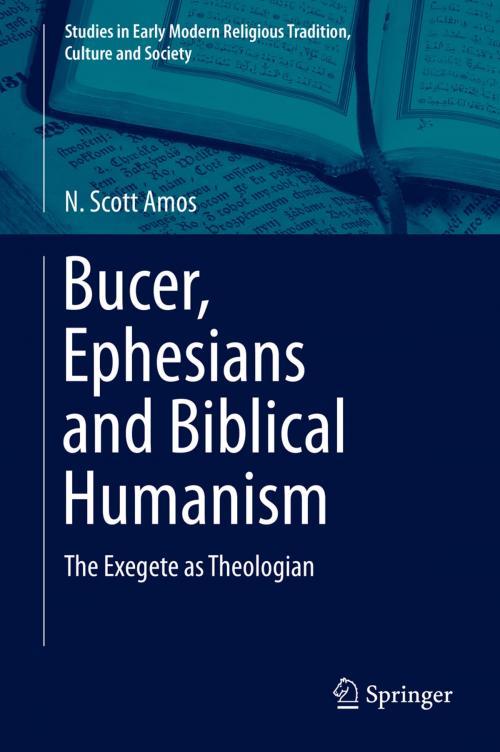Bucer, Ephesians and Biblical Humanism
The Exegete as Theologian
Nonfiction, Religion & Spirituality, Reference, Education, History| Author: | N. Scott Amos | ISBN: | 9783319102382 |
| Publisher: | Springer International Publishing | Publication: | October 27, 2014 |
| Imprint: | Springer | Language: | English |
| Author: | N. Scott Amos |
| ISBN: | 9783319102382 |
| Publisher: | Springer International Publishing |
| Publication: | October 27, 2014 |
| Imprint: | Springer |
| Language: | English |
This book describes Martin Bucer (1491-1551) as a teacher of theology, focusing on his time as Regius Professor of Divinity at the University of Cambridge between 1549 and 1551. The book is centered on his 1550 Cambridge lectures on Ephesians, and investigates them in their historical context, exploring what sort of a theologian Bucer was. The lectures are examined to find out how they represent Bucer’s method of teaching and “doing” theology, and shed light on the relationship between biblical exegesis and theological formulation as he understood it. Divided into two interconnected parts, the book first sets the historical context for the lectures, including a broad sketch of scholastic method in theology and the biblical humanist critique of that method. It then closely examines Bucer’s practice in the Cambridge lectures, to show the extent to which he was a theologian of the biblical humanist school, influenced by the method Erasmus set forth in the Ratio Verae Theologiae in which true theology begins, ends, and is best “done” as an exercise in the exegesis of the Word of God.
This book describes Martin Bucer (1491-1551) as a teacher of theology, focusing on his time as Regius Professor of Divinity at the University of Cambridge between 1549 and 1551. The book is centered on his 1550 Cambridge lectures on Ephesians, and investigates them in their historical context, exploring what sort of a theologian Bucer was. The lectures are examined to find out how they represent Bucer’s method of teaching and “doing” theology, and shed light on the relationship between biblical exegesis and theological formulation as he understood it. Divided into two interconnected parts, the book first sets the historical context for the lectures, including a broad sketch of scholastic method in theology and the biblical humanist critique of that method. It then closely examines Bucer’s practice in the Cambridge lectures, to show the extent to which he was a theologian of the biblical humanist school, influenced by the method Erasmus set forth in the Ratio Verae Theologiae in which true theology begins, ends, and is best “done” as an exercise in the exegesis of the Word of God.















